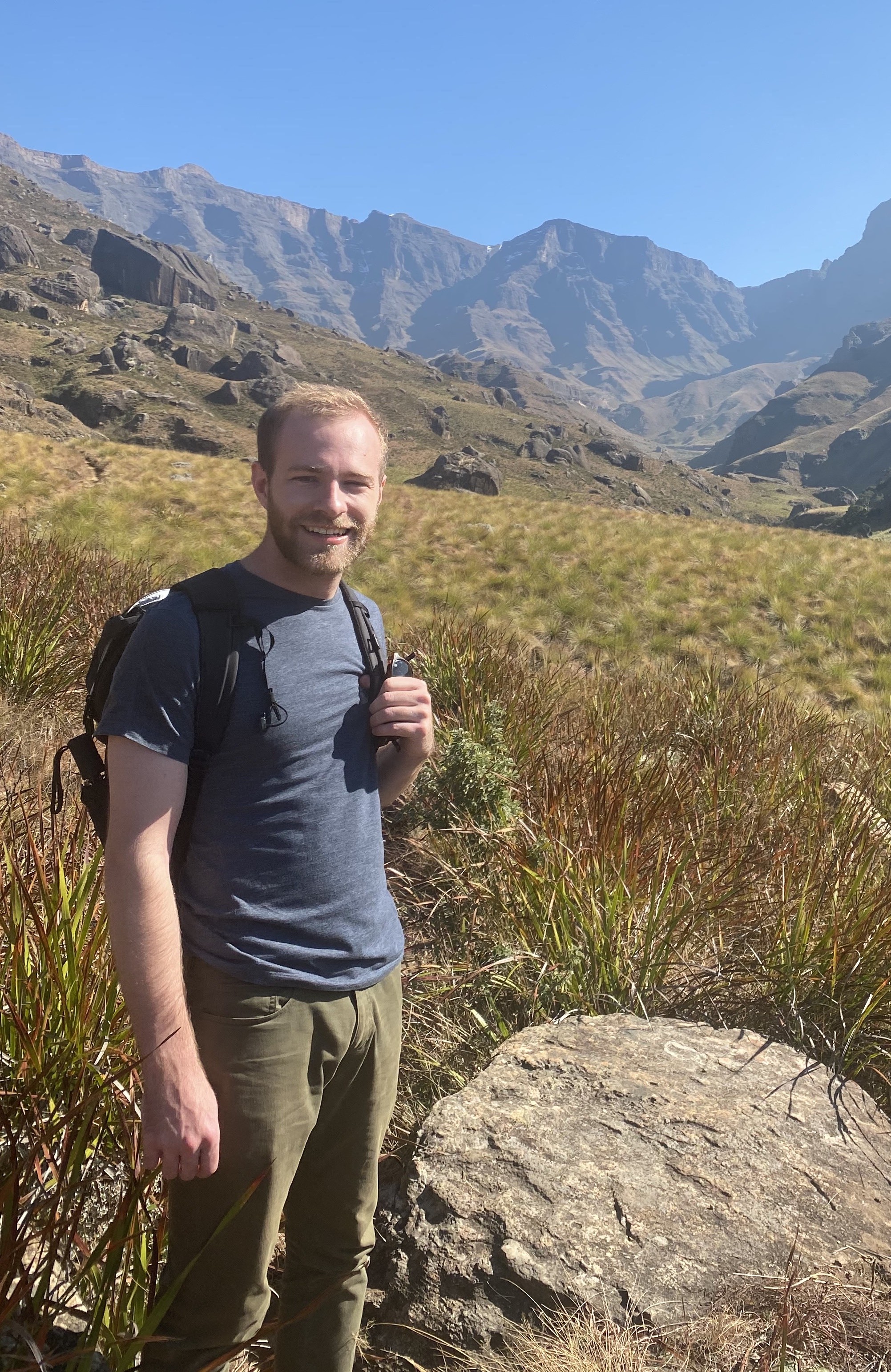
Biography:
Zach Klamann is a doctoral candidate in the Department of Political Science. His research considers the relationships among democratic practices, market capitalism, and the uses of fossil energy. He holds a BA from the University of Oxford.
Project Title: Power Crisis: The Roots of South Africa Electricity and Democratic Crisis
Abstract:
In 2001, South Africa's parastatal electricity utility Eskom was named the world's best power company by The Financial Times. Within six years, however, scheduled blackouts known as load shedding began, escalating fitfully to crisis conditions in 2022, when the country experienced more than 3,700 hours of power outages. How and why did South Africa's once-famed electricity system collapse? This dissertation project begins from this question and uses it as a site from which to examine the broader "South African Crisis," marked by a stagnant economy, trenchant crime, endemic corruption, and political chaos as the party of liberation, the ANC, loses popular support. Finally, it widens the scope of analysis again to ask what the electricity crisis and its role in the wider South African Crisis can reveal about the challenges, contradictions, and complexities of postcolonial democracy and development. Against a dominant interpretation focused on corruption and mismanagement, this dissertation seeks to situate the electricity crisis in the contradictions of the ANC's post-apartheid project. The ruling party saw electricity and coal mining as critical sites to support existing white-owned industry, develop a new "patriotic" class of Black capitalists, and improve the wellbeing of the previously disenfranchised Black majority, yet importantly, the party sought to accomplish these through market mechanisms. This dissertation will track how these projects created incompatible tendencies that not only produced electricity supply shortfalls but also created the conditions for the rise of kleptocratic populist movements that pillaged Eskom and prevented an adequate response to initial blackouts. Through a mixture of ethnographic, interview, and archival methods, I will analyze the effects of the ANC's market reforms in the energy sector and the kinds of politics that arose in response. I consequently hope to speak to literatures on market reforms, energy politics, populism, and the dynamics of postcolonial democracy.
 THE UNIVERSITY OF CHICAGO
THE UNIVERSITY OF CHICAGO

